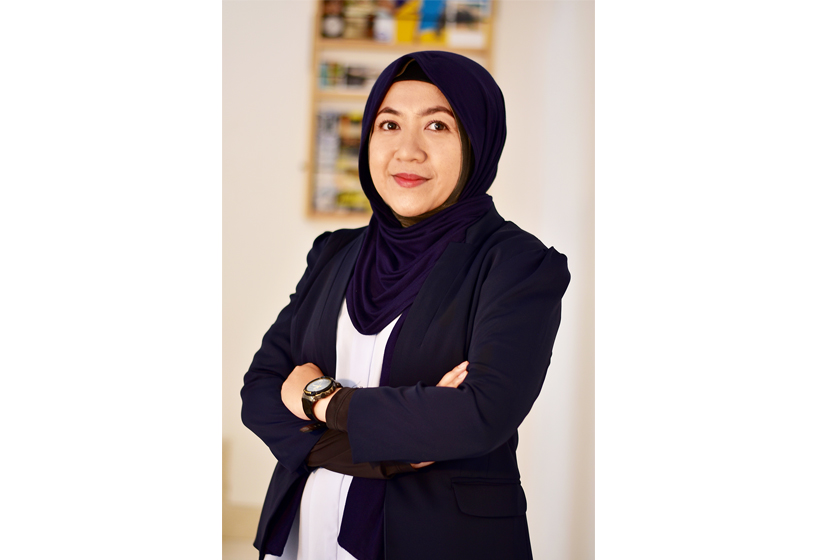
23 April 2025
Join Our Lecture on ‘Innovative Teaching of Simulation Design in an Online Postgraduate Setting’
As online learning continues to evolve, how can educators create engaging, effective, and accessible... Read more
The Australia Awards are prestigious, transformational scholarships and short courses offered to emerging leaders for study, research and professional development in Australia

27 May 2019
 Banda Aware: saving the coral and coastal line
Banda Aware: saving the coral and coastal line
Fishermen from the villages of Tanah Rata, Kumber, Pulau Pisang and Gunung Api in the Banda sub-district, Maluku, are going back to their roots and exploring bamboo as an alternative building material to diminishing coral and beach sand.
This is thanks to the effort of Banda Aware, a marine conservation and community empowerment program funded by the Australian Government through the Alumni Grant Scheme and co-funded by the the U.S. Department of Interior through Coral Triangle Center under the Women Leaders Forum of Coral Triangle Initiative on Coral Reefs, Fisheries and Food Security. It is managed in collaboration with the Management Unit for Banda Sea Marine Protected Area at the Indonesian Ministry of Marine Affairs and Fisheries.
Banda Aware came about in 2018, when Dinah Yunitawati, Senior Technical Officer in Marine Spatial Planning at the Ministry of Marine Affairs and Fisheries, and Sri Rahayu Mansur, Technical Officer at the Management Unit for Banda Sea Marine Protected Area (TWP Laut Banda), met at the Women Leaders Forum of Coral Triangle Initiative on Coral Reefs, Fisheries and Food Security.
“Sri Rahayu brought up how rampant coral and beach sand mining is in Banda, due to locals needing the materials for construction, including housing and infrastructure development,” Dinah recalled.
“These mining activities cause major environmental impacts: degradation of coastal ecosystems, the decline of water quality, coastal erosion, and may also lead to the decline of fish population.”
Locals turn to coral and beach sand for construction materials because the forests in Banda are protected, but there is a lack of community awareness about the long-term effects of coral and beach sand mining. The remote location of the islands means building materials must be shipped in from Ambon, which is expensive.
“Because their main income comes from fishing, which is dependent on weather, the locals aren’t always able to raise the funds necessary to buy building materials from Ambon when they need to expand their house,” said Dinah, who obtained a Master’s in environmental science from the University of Western Australia in 2013, under an Australia Awards Scholarship.
Realising these contributing factors, Dinah and Sri Rahayu decided on a three-pronged approach: a public awareness campaign, alternative livelihood development, and identification of alternative materials.
After conducting surveys to determine which areas had the worst coastal erosion, the Banda Aware team approached respected community figures and stakeholders to introduce the program, including Budiono Senen, a lecturer at the Hatta-Sjahril College of Fisheries, who is well-regarded by the community. The approach proved successful, with 78 people attending an information session, exceeding the target of 50.
During the meeting, the Banda Aware team explained the long-term consequences of coral and beach sand mining, including coastal erosion and decline of the fish population. “Thankfully, the fishermen were receptive,” Dinah said. “It helps that Sri Rahayu has worked in the area for quite some time, and so the locals trust her.”
With this new understanding, locals were now open to alternative building materials. Dinah’s research found that bamboo would be much cheaper and sustainable.
Interestingly, the locals said their ancestors had used bamboo for construction, but they had avoided following their ancestors’ footsteps, believing that only those of lower economic status use bamboo to build houses. They also had concerns regarding the durability of bamboo. To tackle this stigma, the Banda Aware team engaged Blue Forests, an Indonesian foundation that works with coastal communities to restore and enhance critical ecosystems and build community skills and knowledge in the sustainable management of their resources.
“We had to show the community that houses made of bamboo can also be modern,” Dinah explained. Encouragingly, the post-program survey showed more than 70% of participants improved their knowledge on the impacts of coral and beach sand mining, and more than 80% had increased their knowledge on bamboo as an alternative construction material.
Participation in the alternative livelihood skills training was also encouraging. Fourteen women in the Tanah Rata village learned how to produce pressure cooked fish to sell for additional income. Banda Aware provided them with a freezer, vacuum sealers, pressure cookers, scales, and blenders for the herbs and spices.
“The village officials at Tanah Rata were very supportive,” Dinah said. “They also had the foresight to arrange for the kitchen and cooking equipment to be stored at the village centre to avoid jealousy amongst the villagers, only delivering the equipment to whoever had their turn to host the women’s group to produce the fish.”
The support extends to the Kupang National Marine Conservation Area Office (BKKPN Kupang) with future integration with Management Unit for Banda Sea Marine Protected Area activities. The Coral Triangle Center has also expressed support and intent to provide materials for the awareness campaign, while the Hatta-Sjahril College of Fisheries plans to provide experts.
With the support that the Banda Aware team has received, Dinah is optimistic about the future. “It is our hope that the message of coastal conservation and the skills that these villagers have learned will spread to all the islands across Banda and benefit all the communities,” Dinah smiled.
Are you an Australian alumnus who is keen to create your own impact and apply your studies to the real world? Send your proposals for the Alumni Grant Scheme 2019 Round 2 before 24 June 2019.
For more information and application form: https://www.australiaawardsindonesia.org/content/169/15/alumni-grant-scheme?sub=true

Share this article on:
 Related Articles
Related ArticlesThis website uses cookies to improve your website experience. We may also use cookies to analyse website data so that we can improve our online services. To find out more visit our privacy policy.

